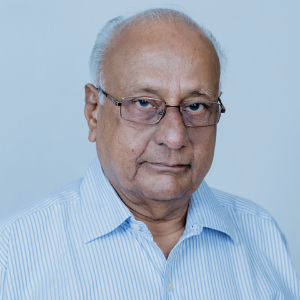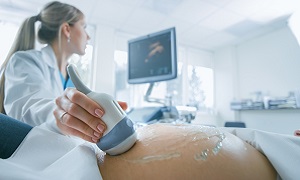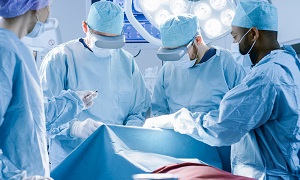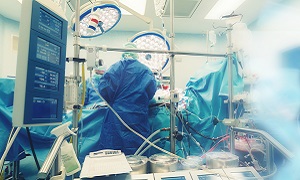Best Doctors in India for Anal Cancer Treatment
- Medical Oncologist, Gurugram, India
- Over 20 years’ experience
Profile Highlights:
- Dr. Randeep Singh has trained extensively in managing cancer patients at the prestigious Tata Memorial Hospital, Mumbai.
- After spending over 20 years in this field, he has a vast experience in breast, lung, and gastrointestinal cancers.
- Throughout his career, Dr. Randeep Singh has had over 40 publications in national and international journals.
- He has also attended and presented various scientific papers in national and international journals.
- Surgical Oncologist, Gurugram, India
- Over 10 years’ experience
Profile Highlights:
- Dr. Shilpi Sharma is a highly experienced surgeon and oncologist who has previously worked in prestigious institutions such as Tata Memorial Hospital, and National Cancer Institute.
- Throughout her career, she has conducted various high-quality research in the field of head and neck cancers. Dr. Shilpi Sharma has also been part of various randomized and nonrandomized trials and has also been involved in clinical and translational research.
- She is also a member of ICMR guideline committee which formulated the ICMR guidelines on tongue cancers.
- Medical Oncologist, Chennai, India
- Over 40 years’ experience
Profile Highlights:
- Dr. Bellarmine Vincent Lawrence is a well-known Medical Oncologist in South India with a specialization in the treatment of breast cancers.
- He provides overall both pre and post-operative treatment of breast cancer that includes diagnostic, therapeutic as well as palliative care.
- He also provides services for other types of cancers including blood cancer and does procedures like Chemotherapy for the treatment and biopsies for the detection of cancer.
- Medical Oncologist and BMT Specialist, Chennai, India
- Over 25 years’ experience
Profile Highlights:
- Dr. T. Raja is a Medical Oncologist from the Tamil Nadu state with 25 years of know-how in this field.
- He has proficiency in Cancer Screening, Chemotherapy, PICC Line Insertion, Bone Marrow Transplantation, Stem Cell Transplantation, Pap collection, lymphoma, Renal Cell Cancer management, and Head and Neck Tumor.
- Dr. Raja was the Principal Investigator for several clinical studies, a published author for journals, and a teacher.
- Medical Oncologist, Chennai, India
- Over 28 years’ experience
Profile Highlights:
- Dr. Sankar Srinivasan is one of the top Medical Oncologists in India with proficiency in cancer management for about 28 years.
- He got certified in Internal Medicine, Medical Oncology, and Hematology from American Board to enhance his skills.
- Dr. Srinivasan is placed in the best 10% of the Hematologists boards.
- He is an active member of several International Medical Association Boards.
Best Hospitals in India for Anal Cancer Treatment
CARE Hospitals, Hyderabad
- City: Hyderabad, India
Hospital Highlights:
- CARE Hospitals were established in the year 2000, by CARE Group.
- The multispecialty hospital has 435 beds, including 120 critical care beds, with an annual inflow of 180000 outpatients and 16,000 in-patients.
- The hospital provides specialty medical services in Cardiology, Cardiothoracic Surgery, Pediatric Cardiology, Pediatric Cardiothoracic Surgery, Neurology, Neurosurgery, Nephrology, and Urology.
- The hospital has the first dual source, 128 slice CT scanner (for high precision cardiac imaging) – the first of its kind in south India.
- The hospital offers a wide range of accommodation facilities for the convenience of its varied patient base, ranging from general wards to super deluxe rooms.
Fortis Hiranandani Hospital, Mumbai
- City: Mumbai, India
Hospital Highlights:
- Fortis Hiranandani hospital was established in 2007.
- The hospital is an advanced tertiary care, multi-specialty hospital equipped with 149 beds.
- The hospital is equipped with a super ICU to provide emergency medical care to critically ill patients.
- The hospital is NABH accredited.
- The critical care facility in the hospital is augmented with the state-of-the-art facilities that facilitate speedier diagnosis and efficient monitoring.
- The hospital provides specialty medical services in cardiology, orthopedic science, pediatric science, neurology, diabetic care, urology, nephrology, ENT, obstetrics, gynecology, cosmetic surgery, bariatric surgery, neuro and spine care.
Fortis Hospital, Anandpur, Kolkata
- City: Kolkata, India
Hospital Highlights:
- Fortis Hospital, Anandapur, Kolkata is a world-class super-speciality equipped with the latest technologies in the medical world.
- The hospital is NABH accredited.
- This state-of-the-art facility specializes in cardiology and cardiac surgery, urology, nephrology, neurosciences, orthopaedics, digestive care, emergency care and critical care.
- The hospital, governed by integrated Building Management System (IBMS), has a pneumatic chute system, for quick vertical and horizontal transportation between floors, facilitating speedy transfer of patient specimens, documents, reports, and medicines to the concerned departments.
- The hospital also has a nephrology department with over 28 advanced dialysis units.
Fortis Hospital Banerghatta, Bengaluru
- City: Bengaluru, India
Hospital Highlights:
- Fortis Hospital Bannerghatta, Bengaluru was established in 2006.
- The hospital is a 276 bedded multi-specialty tertiary care facility.
- The hospital specializes in cutting-edge medical technology and dedicated patient care services.
- The hospital is equipped with state-of-the-art technologies like trans-radial angioplasty, trans-abdominal cardiac surgery, and computerized TKR navigation surgery.
- The hospital provides specialty medical services in cardiology, cardiac surgery, orthopedics, neurology, neuro-surgery, GI, and Minimal Access Surgery (MAS).
Gleneagles Global Hospital, Parel, Mumbai
- City: Mumbai, India
Hospital Highlights:
- Gleneagles Global Hospital The 450-bed facility comprises of 17-stories, housing state-of-the-art infrastructure, and advanced medical care facilities.
- The hospital offers end-to-end clinical, surgical, and diagnostic services. It is equipped with a team of eminent medical professionals aided by qualified nurses and medical staff
- The Hospital offers advanced Endoscopic procedures, Hepatobiliary and Liver Surgeries, Surgical and Medical Gastroenterology, Bariatric Surgery, and Robotic surgery.
- The hospital is a center of excellence for Orthopedics, Joint Replacement, Knee Replacement, and Hip Replacement surgery.
Jaypee Hospital, Noida
- City: Noida, India
Hospital Highlights:
- Jaypee Hospital is the flagship hospital of the Jaypee Group.
- This hospital has commissioned 525 beds in the first phase and has been planned and designed as a 1200 bedded multi-specialty facility.
- It holds the accreditation of the NABH and NABL.
- The hospital has state-of-the-art infrastructure equipped with the latest technologies and modern equipment like 64 Slice PET CT, Dual Head 6 Slice SPECT CT, Gamma Camera, and Da Vinci Robotic Surgery for comprehensive robotic surgical solutions.
- It has special Centers dedicated to the major specialties to provide hassle-free and high-quality clinical care.
Manipal Hospital, Dwarka, Delhi
- City: New Delhi, India
Hospital Highlights:
- Manipal Hospitals, Dwarka, is a super-specialty hospital in Dwarka, New Delhi, which is a part of Manipal Hospitals Group.
- The hospital aims to provide the best treatment on par with international standards at a fraction of the cost.
- Equipped with 380 beds, the hospital is also one of the new age hospitals which are equipped fully with state-of-the-art infrastructure, cutting-edge technology as well as the latest and advanced clinical practices. The hospital also has 13 modular Operation theatres with 118 beds which are solely meant for critical care.
- The hospital comprises internationally acclaimed doctors and highly professional and experienced hospital and medical staff who are able to provide preventive, therapeutic, and diagnostic services all under one roof.
Pushpawati Singhania Hospital & Research Institute, New Delhi
- City: New Delhi, India
Hospital Highlights:
- Established in 1996, Pushpawati Singhania Research Institute is one of the top hospitals in the NCR region, as well as one of the top facilities in India for gastroenterology. The hospital is one of South Asia’s first institutes in medical and surgical treatment for diseases related to digestion.
- The hospital is equipped with state-of-the art facilities coupled with the latest equipment as well as renowned consultants from various parts of India as well as other parts of the world.
W Pratiksha Hospital, Gurgaon
- City: Gurugram, India
Hospital Highlights:
- W Pratiksha Hospital, Gurugram, is one of the best hospitals in the NCR region. It is also a top hospital in India for IVF. Since its inception, the hospital has performed over 5500 successful IVFs. The hospital also specializes in gynecology.
- With over 20 years of experience in providing quality healthcare, the hospital is known as one of the most trusted and valued health providers in India.
- Equipped with world-class medical facilities and advanced technology, the hospital’s doctors and clinicians also have a track record of delivering excellent results. The hospital is also known for focusing on preventive well-being as much as on curative treatment.
- The hospital has earned the trust of its patients, by providing the best available treatments at affordable costs.
Narayana Superspeciality Hospital, Gurugram
- City: Gurugram, India
Hospital Highlights:
- Situated near DLF Cyber City, Gurugram, Narayana Superspecialty Hospital is one of the top medical facilities in the Delhi NCR region, catering to the needs of the people. Known for its commitment to quality medical care and patient service, the hospital is a state-of-the-art facility with planned and well-equipped sections, which includes a spacious OPD area as well as comfortable patient rooms.
- It is the closest super-specialty hospital from Indira Gandhi International Airport towards Gurugram, and also the nearest super specialty hospital from DLF Cyber City. It is also close to major residential areas in Gurugram.
- It is part of the renowned Narayana Health Group. Established in 2000, by Dr. Devi Shetty, a renowned cardiac surgeon, it has grown to be one fo India’s leading healthcare groups.
ANAL CANCER
Anal cancer occurs when cancer cells form tumors in the tissues of the anus. The anus is the small opening located at the lower end of the intestines. This condition causes signs and symptoms such as anal pain and rectal bleeding.
It is an uncommon form of cancer occurring in the anal canal. This canal is a short tube at the rectum end that allows stools to leave your body.
Generally, anal cancer is rare, but when it occurs, it can spread to other parts of the body. If you develop any of the signs and symptoms of this condition, then it is best to see your doctor immediately.
Symptoms
Symptoms of anal cancer can be similar to those of hemorrhoids, gastrointestinal diseases, and irritable bowel syndrome.
These include:
- Changes in bowel habits
- Thin Stools
- Discharge from the anus or itching
- Bleeding from the Rectum
- Pain, Pressure, or the Formation of a lump near the anus
- A growth or mass in the anal canal
- Anal itching
If you experience any of these symptoms and aren’t sure of the cause, then it is best to go to your doctor for evaluation. They will be able to do certain tests to diagnose if these symptoms belong to anal cancer.
Causes & risk factors
Anal Cancer generally develops when due to a genetic mutation, normal and healthy cells turn into abnormal cells. Healthy cells grow and multiply at a set rate, eventually dying at a set time. Abnormal cells grow and multiply out of control, and they don’t die either. Thus, these accumulating abnormal cells form a mass or a tumor. Cancer cells invade nearby tissues and may separate from an initial tumor and spread elsewhere in the body.
Anal cancer is also related to a sexually transmitted infection known as human papillomavirus or the HPV virus. This HPV virus is detected in the majority of anal cancers and is therefore considered to be the most common cause of anal cancers.
Several factors are known to increase the risk of anal cancer. Some of these include:
- Older age- Most cases of anal cancer are generally seen in people aged 50 or older.
- Having many sexual partners- People who have many sexual partners over their lifetime generally have a greater risk of this condition.
- Anal sex- People who engage in receptive anal sex also have an increased risk of anal cancer.
- Human papillomavirus (HPV)- The HPV infection can increase your risk of several cancers, which also include anal cancer. HPV infection is a sexually transmitted infection which might cause genital warts as well.
- Smoking- Smoking cigarettes also increase the risk of anal cancer.
- Having a history of cancer- Those who have had cervical, vulvar or vaginal cancer are at an increased risk of anal cancer.
- Immunosuppressive drugs- Some people take drugs to suppress their immune systems. This includes people who have received organ transplants. They may have an increased risk of anal cancer. The HIV virus also suppresses the immune system and can increase the risk of anal cancer.
Diagnosis
People who are at high risk for anal cancer can be diagnosed by screening tests, such as the digital rectal exam or anal Pap test. A doctor might also find anal cancer during a routine physical exam or during a minor. Treating cancers that are found in this way is very effective since the tumors are found early.
Generally, a doctor first asks about your medical history if you have any symptoms of anal cancer. Your doctor will also examine you to look for signs of anal cancer, as well as other health problems. If any problems are found, your doctor is going to require a few other exams or tests to find the cause of cancer. A few more tests can be required, which include the following:
Digital rectal exam
Anoscopy
For anoscopy, a doctor uses a short, hollow, firm tube called an anoscope, which may have a light on the end of it. The anoscope is coated with a gel and then gently it is gently pushed into the anus and the lower rectum.
The doctor is able to have a clear view of the lining of the lower rectum and anus. Samples from abnormal areas can be taken at the same time, to be tested in the lab. During this test, you will be conscious but it doesn’t usually hurt.
Rigid proctosigmoidoscopy
Endoscopy
Biopsy

If a change or abnormal growth is detected during an endoscopic exam, then your doctor is going to need to take out a piece of it so that it can be determined in the lab if it’s cancerous. This is called a biopsy. If the growth is in the anal canal, it may be through the scope itself. Sedative drugs may be used to numb the area before the biopsy is taken. If the tumor is too small, your doctor might try to remove the entire tumor during the biopsy.
Blood tests
If you have risk factors for HIV, your doctor is likely going to order a blood test to check for it. This information is important since HIV positive patients require treatment for HIV so that their immune system is healthy again before they undergo cancer treatment.
Ultrasound
Ultrasound uses sound waves for creating images of the internal organs or masses. This can help to see how deep cancer has grown into the tissues near the anus. Although for most ultrasound exams, a transducer is moved around on the skin, for anal cancer, the transducer is put into the rectum. Although the test can be uncomfortable, it generally doesn’t hurt.
Computed tomography (CT) scan
Magnetic resonance imaging (MRI)
MRI scans use radio waves along with strong magnets. Contrast material may be injected into a vein before the scan to see details better.
This test is also used to see if nearby lymph nodes are enlarged, which is an indication that cancer has spread there. MRI can also be used to look at abnormal areas in the liver or the brain and spinal cord that could be cancer spread.
Chest x-ray
Positron emission tomography (PET) scan
Treatment
The treatment you receive for anal cancer generally depends on several factors, which include your overall health, the stage of your cancer, as well as your own preferences.
In most cases, anal cancers are treated with a combination of chemotherapy and radiation. Together these two treatments can enhance the chances of having a cure.
Chemotherapy
In Chemotherapy method, drugs are injected into a vein, or taken as pills. These chemicals travel throughout the body and rapidly kill growing cells, including the cancer cells. However, they also cause damage to some of the healthy cells, and this can cause certain side effects, like vomiting, nausea, and hair loss.
Radiation therapy
Radiation therapy involves using high-powered beams like X-rays and protons, to kill the cancer cells. During the procedure, you are positioned on a table, and a large machine moves over you and directs the radiation beams to specific areas of your body to target cancer.
However, it is to be noted that radiation can also damage any health tissue near where the beams are aimed. Side effects can include skin redness and sores in and around the anus, as well as hardening and shrinking of your anal canal.
For anal cancer, radiation therapy is generally required for five to six weeks.
Though the combination of chemotherapy and radiation makes the treatments more effective, side effects become more likely. You can talk to your doctor regarding the side effects you can expect.
Depending on the stage of your cancer, your doctor might also recommend surgery.
Surgery for removal of early-stage anal cancers
Small anal cancers can be removed through surgery. During the procedure, the surgeon will remove the tumor and a small amount of healthy tissue surrounding it.
Since the tumors are small, early-stage cancers can sometimes be removed without causing any damage to the anal sphincter muscles surrounding the anal canal.
Depending on your cancer, your doctor may also recommend chemotherapy and radiation after surgery.
Surgery for cancer that hasn't responded to any other treatments
If your cancer is not responding to chemotherapy and radiation, your doctor might recommend a more extensive operation which is known as abdominoperineal resection, also called AP resection. During this method, the surgeon will remove the anal canal, rectum along a portion of the colon. The surgeon then attaches the remaining portion of your colon to an opening or stoma in your abdomen through which waste is able to leave the body and collect in a colostomy bag.
Immunotherapy
Palliative care
Alternative Medicine
This treatment cannot cure cancer but help the patients cope with any side effects of cancer. This type of treatment provides additional comfort and complements your current treatment from the doctor.
- Nausea: Hypnosis, acupuncture, music therapy
- Anxiety: massage, hypnosis, exercise, meditation, relaxation technique, music therapy
- Sleep problems: Relaxation technique or yoga
- Fatigue: Tai chi or gentle exercise
- Pain: Massage, hypnosis, acupuncture, music therapy
Coping and support
- Ask your doctor about the details of anal cancer which include its staging, type, prognosis, and treatment.
- Stay in close contact with your friends or family who will take care of you and support you.
- Find someone whom you can talk to whether a family member or a friend. You may also take the help of a support group and be a part of any of those communities.
Complications
Prevention
Although there is no way of preventing anal cancer, you can reduce the risk of the same.
- Getting vaccination for HPV: Vaccines are available that you can take to protect yourself from HPV infection. Whether you are an adult or a teenager and a boy or a girl, you can get the vaccine.
- Quit smoking: If you are having the habit of smoking, you must quit the same immediately as smoking can increase your risk of developing anal cancer.
- Practicing safer sex: It helps to prevent both types of sexually transmitted viruses- HIV and HPV that increase your risk of developing anal cancer.

























